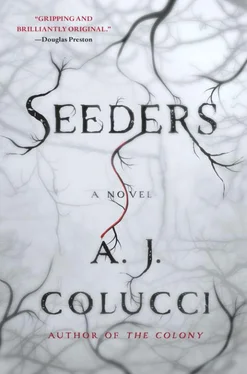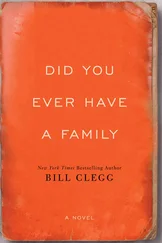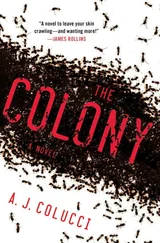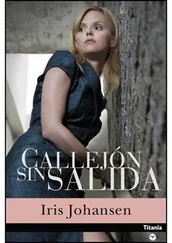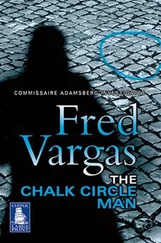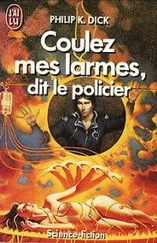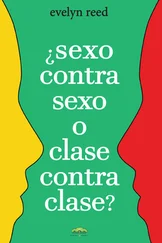Enquirer scoffed, “It’s really simple, Beecher. You can’t have intelligence without a brain.”
The other reporters at the table fidgeted uneasily.
Jules felt his heart pounding. It was obvious the man was an idiot. “Science has already proven that plants can breathe without lungs, digest without a stomach, move without muscles, and transmit electrical signals without a nervous system. So is it unreasonable to assume they can think without a brain?”
“I can’t believe you’re sitting here comparing plants to humans. They’re vegetation, as similar to humans as my shoe.”
Jules had stopped listening. He thought about how sheltered he’d been, surrounded by equal minds who thought as he did. He’d become widely regarded as a cerebral scientist known for a reserved manner and friendly charm. Yet two minutes with this reporter and Jules wanted to beat the man to death. He could picture his hands wrapped around that skinny neck.
“Bunch of crap,” Enquirer muttered.
Jules blinked and forced his voice steady. “We’ve known for a hundred years, since the work of Jagadish Chandra Bose, that plants can feel fatigue, empathy, irritability, and even pain. That’s not even debatable at this point.”
Schroeder was shaking his head.
Jules turned to the woman from Wired, beaming in an attempt to lighten the mood. “Did you know that a plant treated with chloroform will become anesthetized, just like animals? They can become intoxicated from a shot of whiskey, swaying like a drunk, even passing out and becoming revived with signs of a hangover. Why, simply cutting one leaf of a plant will produce signs of acute shock to the entire organism, and the other leaves can remain depressed and hyper-responsive for hours.”
“I had no idea plants were so sentient,” Wired said. “It really makes an intelligent person think.”
“You know what I think?” Enquirer said. “It’s all a bunch of crap. This whole field of study is what you call pseudoscience. Be good to plants because they have feelings too. It’s been going on since the sixties, and frankly it’s getting a little old. So now you fudge a few experiments to back up your claims, and I’m saying, it’s still the same old crap.” He shoved a forkful of lettuce in his mouth and looked around the table with an expression of triumph, as though he’d revealed something important, pointing out the naked emperor.
The woman from Wired excused herself and abruptly headed to the buffet table, which had just opened.
She passed Schroeder, who was looking rather nauseous.
Jules felt his eye twitch and scanned the room full of journalists. What was he doing here? None of these people understood what he meant, not really. He stared at Enquirer, with his cynical, doubting face, and threw him a murderous glance. “I realize there will always be people who question our work at the institute. However, if you bother to actually read the papers that have been written on this subject over the last decade, you will find that plant intelligence is an indisputable fact. We can no longer deny it, any more than we can deny that dogs, dolphins, and rats display their own cognitive abilities. If a crow has intelligence, why not an amoeba, which can navigate a maze as well as a mouse? And then why not snakes, bacteria, or even lima bean plants? Where exactly does intelligence begin? I would argue that the difference is quantitative, not qualitative. So while you may think the study of plant intelligence is crap, any true scientist will tell you that survival is the single greatest determinant of a species’ success on earth, and on that basis, plant intelligence far surpasses that of humans.” Then he added, “Some humans more than others.”
Enquirer chuckled. “Hey, check this out, Beecher.” He reached across the table to the centerpiece, a spray of flowers, and grasped a carnation between his fingers. He snapped off the top of the stem and waved the red flower at Jules. “I think we’re safe from their tyranny.”
Jules had had enough. Reasoning was pointless. His heart rate slowed, as hatred replaced anger. “You’re perfectly correct. Until man came along with his penchant for destroying that which keeps us alive, there had never been an enemy plants couldn’t conquer or a geological condition they could not overcome. For seven hundred million years they’ve withstood ice ages, erupting volcanoes, meteor showers, and events brutal enough to kill off ninety-nine percent of species on the planet. So you raise a good point. If plants had the means to destroy humans, would they? Like the cowpea that releases peptides against the armyworm, or the tannins of a hemlock that kill attacking bacteria; would that Dianthus caryophyllus you just decapitated want to chop off your head?”
“Good afternoon, gentlemen!” Edward Schroeder stood behind Jules with his arms wide in a welcoming gesture. “It’s so good to see you all here. We have a wonderful buffet set up and I’ll bet you’re all starving.” He glared at Jules. “I trust Dr. Beecher has given you an excellent overview of his groundbreaking study. So before we begin our film, I suggest you enjoy our delicious dinner.”
“Yes, of course.” Jules stood up, towering over the table and spoke softly to Enquirer . “Thank you for the discussion.” In a parting glance, he muttered, “Arsehole.”
* * *
The guests lined up for a seafood buffet while an orchestra played a lively version of “Ramblin’ Rose.” Jules sat alone at the table, with a small plate of linguine in clam sauce. He didn’t feel so well and decided to get some fresh air before the documentary began. He threw down his napkin and had started for the patio doors when he was approached by a distinguished-looking man who barely reached his shoulders.
The man extended a hand. “Dr. Beecher, it’s a pleasure to meet you.”
Jules shook it quickly, anxious to get outside.
“I read your latest book. It was quite good.”
“Thank you. Will you excuse me, please?”
“It reminded me so much of George Brookes.”
Jules paused, peering down at the man. “Who are you?”
“Nicholas Bonacelli. I’m Professor Brookes’s lawyer.”
“Oh. I see. How is George?”
“Dead, I’m afraid.”
Jules looked shocked.
“I am sorry,” the lawyer said. “He spoke very highly of you.”
“He was my mentor years ago. This is terribly sad. I feel awfully guilty not having visited him. Was it sudden?”
“Quite.”
Jules didn’t press for details.
“You must come to Sparrow Island right away. He’s named you in his will.”
“Sparrow Island? I’m afraid that’s out of the question.”
“There’s a cab waiting outside. I’ve made all the arrangements for your travel this evening.”
“Tonight?”
The Garden Terrace Room was bustling all around him, as Jules considered his obligation to the institute. He was, after all, the main reason for the dinner. On the other hand, the reporters at his table had no grasp of botany or the implications of his experiments. It wasn’t viewed as news of a scientific breakthrough, but as entertainment. They would probably write two-inch articles with snappy headlines like “Smarty Plants” and “Getting to the Root of Gossiping Tomatoes.”
Jules felt uncomfortably torn. He spotted Edward Schroeder, pointing him back to his table where the reporters had taken their seats and the Enquirer madman was holding court, displaying Jules’s book in a comical manner.
He nodded to the lawyer. “Give me half an hour to pack.”
THE SEA AIR WAS FOGGY with silver mist as the Acadia bounced along the waves.
Читать дальше
